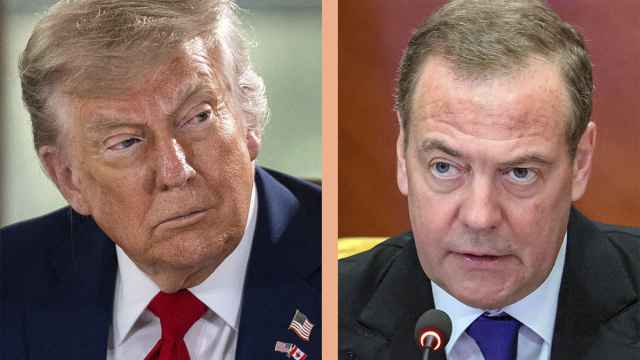The left-leaning Just Russia party wants to prohibit state officials from hiring close relatives to directly subordinate positions in state or municipal organizations.
According to amendments to anti-corruption legislation submitted to the State Duma on Friday and discussed by the anti-corruption committee on Saturday, the ban would cover close family members, including grandparents, brothers and sisters, if their positions gave rise to "direct subordination or control over one another."
Just Russia party leaders Nikolai Levichev and Sergei Mironov said in a letter accompanying the proposals that the amendments were aimed at fighting nepotism and corrupt practices within official structures.
"If a person works in a state organization, it should be made clear that no husband or wife can make a decision on who should be hired. There is no control over direct subordination of [close relatives in state institutions]," Just Russia party deputy Oleg Mikheyev, who took part in preparing the amendments, said Sunday.
Analysts said the problem of officials hiring their relatives was widespread on the regional level. Decisions to nominate certain people are often made as a matter "of personal choice," a former senior government official said.
"I once asked why we have a particular person as a deputy governor and was told that he is someone's relative," he said, speaking on condition of anonymity.
While the amendments target direct subordination in state organizations, many senior governmental officials have relatives working in state-owned banks and corporations in positions that that they do not directly supervise or control.
One well-known example is the Head of the Presidential Administration Sergei Ivanov. His youngest son, Sergei, works as CEO of the Sogaz insurance company, which has Gazprom among its main shareholders, while his elder son, Alexander, works as a deputy head of Vneshekonombank, which is 100 percent owned by the government.
Another amendment to the anti-corruption legislation aims at schemes that may take advantage of such non-direct links.
"The embezzlement of state funds is often done by transferring the financial assets of state and municipal bodies … into organizations headed by close relatives of the head of the paying organization," said the letter accompanying the legislation.
A Just Russia's amendments to the law would prohibit such transfers. If one were uncovered, the official responsible would be fired.
Kirill Kabanov, head of the National Anti-Corruption Committee, a non-governmental watchdog, welcomed the proposal. But it is unlikely to get a lot of votes, since it is not in line with the attitude of the "political elite," he told Kommersant Radio on Sunday.
Boris Kagarlitsky, head of the Institute of Globalization, a left-leaning think-tank, said the legislation represents "good intentions."
However, the problem it addresses is not the "root of all evil," he said. "Corruption is created by unequal economic distribution, and we need to radically change the whole structure of society to get rid of it."
Contact the author at [email protected]
A Message from The Moscow Times:
Dear readers,
We are facing unprecedented challenges. Russia's Prosecutor General's Office has designated The Moscow Times as an "undesirable" organization, criminalizing our work and putting our staff at risk of prosecution. This follows our earlier unjust labeling as a "foreign agent."
These actions are direct attempts to silence independent journalism in Russia. The authorities claim our work "discredits the decisions of the Russian leadership." We see things differently: we strive to provide accurate, unbiased reporting on Russia.
We, the journalists of The Moscow Times, refuse to be silenced. But to continue our work, we need your help.
Your support, no matter how small, makes a world of difference. If you can, please support us monthly starting from just $2. It's quick to set up, and every contribution makes a significant impact.
By supporting The Moscow Times, you're defending open, independent journalism in the face of repression. Thank you for standing with us.
Remind me later.





